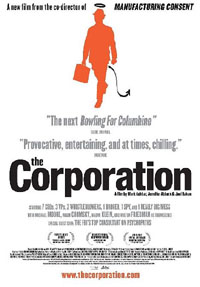
I've been sitting on this blog post for bloody ages. But Tom's post has tipped me over.
Want to see something cool that's coming soon? Take a gander at XProc – the XML Pipeline Language. It's a way of defining a series of processes that operate on an XML file – for instance, running it through XInclude, schema validation, XSLT and making choices etc. It is great in as much as it's abstracting yet another layer out of the processing systems (SAX, DOM etc.) and their implementations (Java, PHP etc.) – obviously there are problems with that. Norman Walsh says that it's quite likely to be finished early next year. Kurt Cagle of XML.com thinks this is a good thing, and should fit in to the XML+REST ecosystem nicely.
So I've been thinking about some presentations and talks I'm planning on giving next year. I can't quite put my finger on the exact term but I know through blogging it and being very open about my thoughts I might reach a set of conclusions or at least points worthy of talking about with others..In my usual style a lot of the stuff is scattered around all over the place, so I'm going to try and use a wiki or something else to tie things togther.
My abstract for Etech 2007, which didn't get accepted.
API's are a great way of developers being able to access data and content from one provider. But with the trend of the mash-up has come the ability to join two or more providers together to the benefit of the user. This level of interoperability means people can start offering automation and new business opportunities by chaining services together. As many of us look towards the social benefits of a somewhat centralised Web 2.0, I can see how our single provider habits will be broken by the user generated pipelines.
Like Unix Pipelines, a user generated pipeline can be used to send content through a series of pipes. But unlike UNIX pipelines these pipes can be a series of remote or local webservices, services, applications, transformers, etc. A simple example could be, uploading a photo from your mobile phone to Flickr, then that same photo magically appears on your friends doorstep processed, nicely cropped with a related personal message with no more time or effort required from yourself. Thats the magic of pipelines.
This is not a new concept but how we manage this has existed in the domain of Apple-scripters, Perl and Python hackers. Automator by Apple is an example of this, but fails due to its proprietary nature.
I'm proposing that a series of pipelines will be ultimately definable, non-proprietary and shareable by anyone who can install and run a browser. A whole eco-system will grow out of this decentralised user driven behaviour, which I call Web 2.5.

The Flickr example I gave works on an application being authorised to access a certain picture on Flickr. Flickr already has this feature in its API and many other services use this to provide services to there users. So in this example Preloadr.com are instructed to receive the picture and do the default image enhancement which there famous for. After the preloadr is finished the picture is passed on to delivr.net which can create postcards and send them to a person on request.
This is all possible now with simple AppleScript or some other scripting language like Perl but requires a intimate knowledge of the scripting language. A user generated pipeline would be the higher level language to describe the Flickr example

Addy Santo of Santomania once wrote this quite fantastic application called Blogwave which he has not been updated for at least 3 years now. Its a multi purpose .net application which can consume RSS feeds (generator), transform them with some parameters like sort. It would then send them somewhere else, for example FTP, Email, SMB, etc in a RSS or Text form. What I found interesting about it was actually, it would create timed batch tasks in the standard Windows scheduler (something not many people use on there desktop). So in actual fact, it was a GUI for the command line in Windows. The application was a head of its time and unfortually not open source, so its kind of died but can still be used if you find the right link. But the concept is key, a GUI creates scripts or manages the complex pipeline process. The different pipes are already defined so you don't need some low level code to manage it. It seems Touchstone will take over from where Blogwave went, but I'm not on the alpha programme so I can't actually play with it.

I have tons of other examples but I'm now saving them up for the wiki and for my talk at Xtech 2007 which I'm currently rewriting my failed Etech proposal for right now.
Comments [Comments]
Trackbacks [0]












